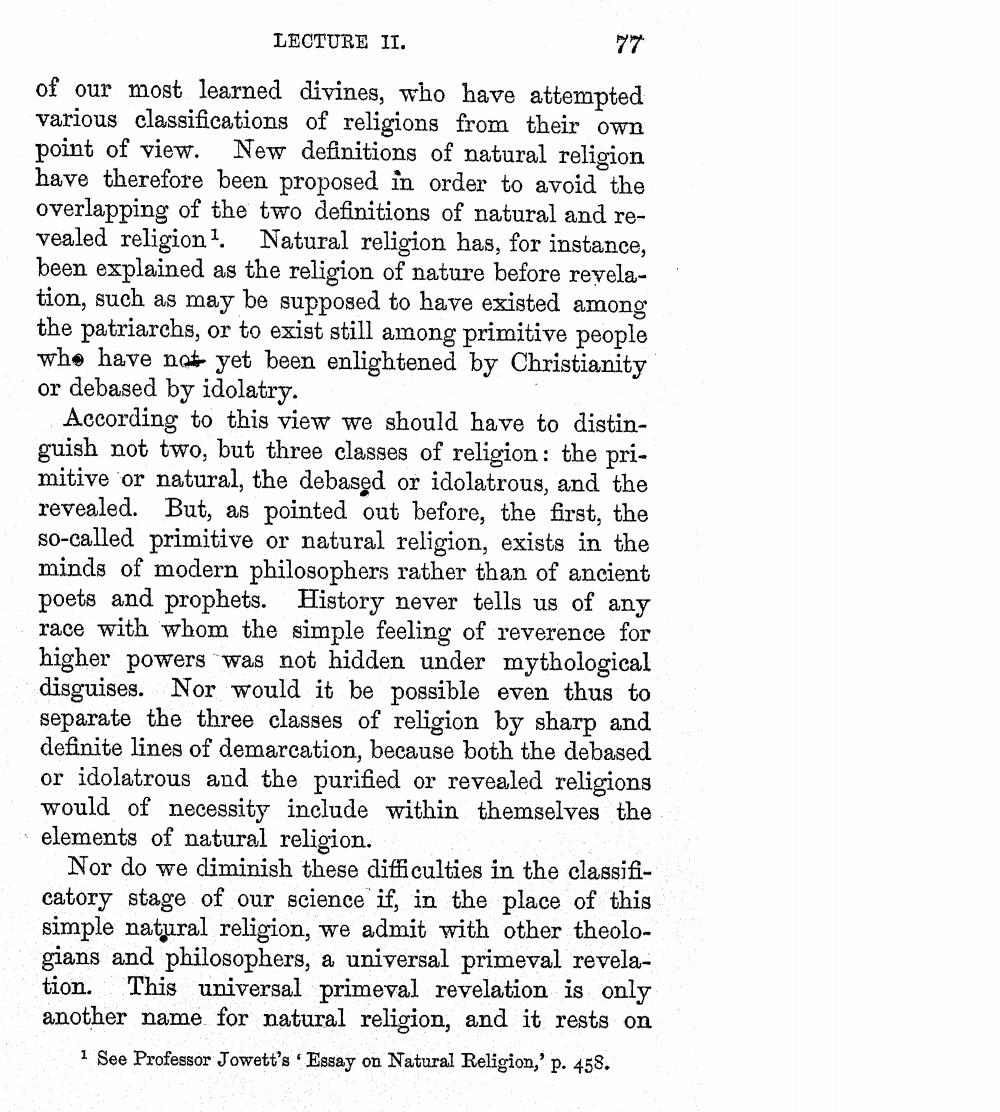________________
LECTURE II.
of our most learned divines, who have attempted various classifications of religions from their own point of view. New definitions of natural religion have therefore been proposed in order to avoid the overlapping of the two definitions of natural and revealed religion?. Natural religion has, for instance, been explained as the religion of nature before revelation, such as may be supposed to have existed among the patriarchs, or to exist still among primitive people who have not yet been enlightened by Christianity or debased by idolatry.
According to this view we should have to distinguish not two, but three classes of religion: the primitive or natural, the debased or idolatrous, and the revealed. But, as pointed out before, the first, the so-called primitive or natural religion, exists in the minds of modern philosophers rather than of ancient poets and prophets. History never tells us of any race with whom the simple feeling of reverence for higher powers was not hidden under mythological disguises. Nor would it be possible even thus to separate the three classes of religion by sharp and definite lines of demarcation, because both the debased or idolatrous and the purified or revealed religions would of necessity include within themselves the elements of natural religion.
Nor do we diminish these difficulties in the classificatory stage of our science if, in the place of this simple natural religion, we admit with other theologians and philosophers, a universal primeval revelation. This universal primeval revelation is only another name for natural religion, and it rests on
1 See Professor Jowett's Essay on Natural Religion,' p. 458.




